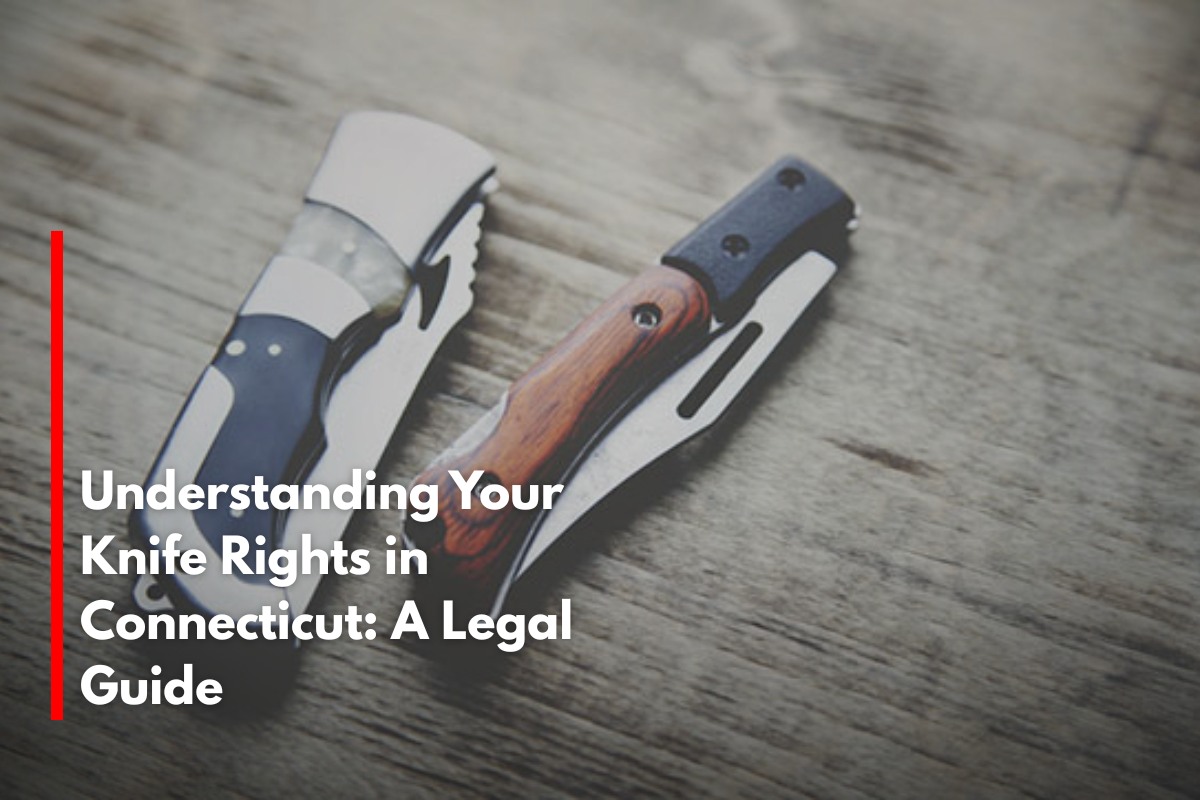Knives are essential tools for many daily activities, from cooking to outdoor work, but understanding the legal framework surrounding their ownership and carry is crucial, especially in states like Connecticut where knife laws are detailed and restrictive. Here’s a comprehensive guide to your knife rights in Connecticut to help you navigate the state’s regulations safely and legally.
Knife Ownership and General Legality
In Connecticut, owning knives is generally legal. Residents and visitors can possess various types of knives for lawful purposes such as hunting, fishing, collecting, or work. There is no outright ban on owning specific knives, but certain restrictions apply to the carrying and public possession of knives based on blade length and type.
Blade Length Restrictions and Prohibited Knives
Connecticut law restricts the possession and carry of knives with a blade length exceeding certain limits:
Any knife with an edged portion longer than 4 inches is treated as a dangerous weapon. Carrying such knives in public or in vehicles is illegal unless specific exceptions apply.
Automatic knives (switchblades) are limited to a maximum blade length of 1.5 inches. Carrying or possessing larger automatic knives is prohibited.
Other restricted blades include stilettos, dirks, and knives with automatic spring release devices exceeding the length restrictions.
Violating these blade length provisions is a felony under Connecticut law and can lead to serious penalties, including imprisonment for up to five years and fines up to $5,000.
Carrying Knives: Concealed or Open
Contrary to some states, Connecticut does not differentiate much between open or concealed carry of knives. Instead, the law focuses mainly on the blade length and whether the knife qualifies as a dangerous weapon under the law. Carrying a legal-sized knife either openly or concealed is permitted as long as there is no intent to use it unlawfully.
Exceptions to the Restrictions
Several important exceptions to these restrictions exist under Connecticut statutes:
Transporting knives as part of moving household goods or effects.
Carrying knives to and from a place for repair.
Possessing knives while lawfully hunting, fishing, trapping activities if the person holds a valid license.
Participating in authorized historic reenactments.
If you fall under these exceptions, they serve as affirmative defenses if charged, but it is crucial to understand and be able to prove these circumstances if questioned by law enforcement.
Knife Restrictions in Specific Locations
Connecticut has strict rules about carrying knives on school grounds or school-sponsored events. Possessing any weapon, including knives defined as deadly weapons, in such areas is a Class D felony, punishable by imprisonment and fines. It is strongly recommended to avoid carrying knives on school premises altogether to prevent legal complications.
Law Enforcement and Military Exceptions
Law enforcement officers and active-duty military personnel are often exempted from some knife possession restrictions as part of their official duties, under specific statutes. This ensures they can carry necessary equipment legally while performing their job functions.
Understanding the Second Amendment Context
Connecticut courts recognize that some knives, such as dirk knives, are protected under the Second Amendment as constitutional arms. This means that not all knife restrictions are absolute and must be balanced against constitutional rights. The landmark case State of Connecticut v. DeCiccio (2014) affirmed this view, emphasizing that military-style knives are not considered unusual or dangerous under constitutional protections.
Key Connecticut Knife Laws
| Aspect | Regulation |
|---|---|
| Legal ownership | Allowed, with restrictions on blade length and type |
| Maximum blade length | 4 inches for general knives, 1.5 inches for automatic knives |
| Carry (open/concealed) | Allowed if legal size and no criminal intent |
| Restricted locations | School grounds and events – carrying knives is a felony |
| Exceptions | Moving household goods, repair, licensed hunting, reenactments |
| Penalties | Class D felony; fines up to $5,000; imprisonment up to 5 years |
Understanding Connecticut’s knife laws is essential for lawful possession and use. Always check blade lengths before carrying a knife in public or vehicles, and be aware of restricted locations like schools. When in doubt, consult legal professionals or local authorities to ensure compliance and avoid serious legal consequences.
This knowledge helps safeguard your knife rights while promoting responsible ownership and public safety in Connecticut.
Sources
(https://www.akti.org/state-knife-laws/connecticut/)
(https://nobliecustomknives.com/us-knife-laws/connecticut-knife-laws/)
(https://ravencresttactical.com/connecticut-knife-laws/)
(https://portal.ct.gov/BFPE/Laws/Laws/Law-3)
(https://www.akti.org/the-everyday-knife/)











